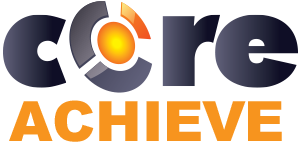Stopping Harassment Through Training: How HR Benefits from LMS Solutions
October, 26 2023
Other posts:
Enhancing Team Dynamics for Effective Group Decision-Making with LMS Integration
Organizations increasingly rely on collaborative efforts to solve complex problems, innovate, and adapt to change, but how do we ensure that collaboration is happening.
Maximizing Small Business Potential with Training Technology
Training technologies can push small businesses ahead of their competitors, but what are the factors that go into choosing the right technology?
Unlocking Employee Potential: The Transformative Benefits of an Interactive Learning Management System (LMS)
Interactive training allows for unlocking employee potential, but how is it done?
Building a Robust Sales Pipeline with Training
Every organization wants a streamlined sales pipeline, but building one requires a series of interlocking activities with one of the most important being training.
Strategies for Adapting In-Person Training to Online Platforms
Online training is one of the most flexible ways of delivering training across organizations, but how do you even begin to adapt in-person training into online?
Some organizations can be bigger than small towns and keeping that many people from causing problems is difficult. Can an LMS help cut down on this harassment?
Everyone wants to feel respected at work, regardless of who they are, but this respect isn’t just for the worker as the organization benefits greatly as well. Not only is preventing harassment a legal requirement and an ethical imperative, but it will hamper organization-wide productivity. Human Resources (HR) professionals play a pivotal role in creating a workplace culture where harassment is not tolerated and one effective way, they can address harassment is through Learning Management System (LMS) training platforms.
The Harassment Problem
Harassment in the workplace leads to many negative repercussions, both human and otherwise, like legal ramifications, employee morale, and loss of productivity.
Legal Ramifications
By non-complying with anti-harassment laws organizations open themselves up to costly lawsuits and penalties. While these may not seem like much at first, lawsuits and penalties may begin the downward spiral of an organization—eventually leading to their dissolution.
Erosion of Employee Morale
Harassment will create a hostile work environment, causing employees to lose morale and engagement. Why would they want to put their all into an organization that doesn’t return that care back to the employee.
Low morale won’t just affect the person getting harassed, it’ll spread like a disease throughout the organization and soon will impact wide swaths of the organization.
Productivity Loss
This erosion of morale will make employees less productive or even leave the organization, leading to higher turnover—a problem that isn’t fixed just by hiring new people.
Reputation Damage
News of harassment incidents will damage an organization's reputation, making it challenging to attract top talent or retain clients. Anything else dubious that the organization has done will also be brought into the public consciousness.
HR departments often shoulder the responsibility of addressing harassment, from setting policies to conducting investigations and providing training. LMS platforms can be invaluable tools in this endeavor.
The Benefits of LMS Solutions for HR and Anti-Harassment Training
Scalable Training
With LMS platforms, HR can easily provide training to a large workforce, regardless of geographical locations. This scalability is essential for anti-harassment training because the bigger an organization is, the more difficult it’ll be to ensure that all employees are following standards.
Consistent Content
LMS platforms deliver standardized anti-harassment training content to all employees. This consistency ensures that every employee receives the same essential information, preventing any ambiguity—vital for anything with possible legal repercussions.
Customized Training
HR can tailor anti-harassment training content to the organization's unique needs. It may include real-life examples relevant to the industry or specific workplace.
Interactive Learning
Interactive features in LMS platforms, such as quizzes and scenario-based modules, engage employees more effectively than traditional training methods. They help reinforce the importance of preventing harassment and provide obvious examples of what to do.
Progress Tracking
LMS platforms allow HR to monitor employee progress. They can identify areas where more support or intervention may be necessary.
Accessibility
Employees can access training materials at their convenience, promoting inclusivity and making it easier for remote or shift workers to participate. This accessibility also makes it difficult for people to dodge the mandatory anti-harassment training.
Real-world Simulations
LMS platforms can include real-world harassment scenarios to help employees recognize and respond to inappropriate behaviors in the workplace.
Certifications and Records
After completing training, employees can receive certifications, and records are maintained within the LMS, serving as documentation of compliance. So, if anything does happen, an organization can have proof of attempting to stop the harassment.
All of this is to say, HR professionals can effectively combat harassment through LMS solutions, addressing a critical issue while benefiting the organization. With scalable, consistent, and interactive training, organizations can reduce legal risks, improve employee morale, and enhance their reputation. By leveraging LMS platforms for anti-harassment training, HR can play a significant role in creating a safer and more respectful workplace. Besides, an LMS can also be used for training beyond anti-harassment, allowing an organization to save money and time.
Get started with CoreAchieve today for free.
Photo by Fahad Bin Kamal Anik on Unsplash

Leave comment: